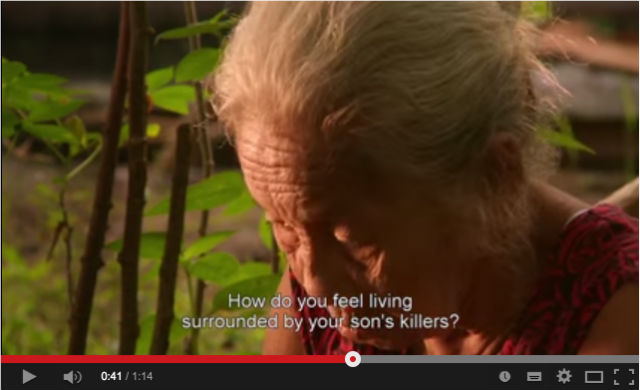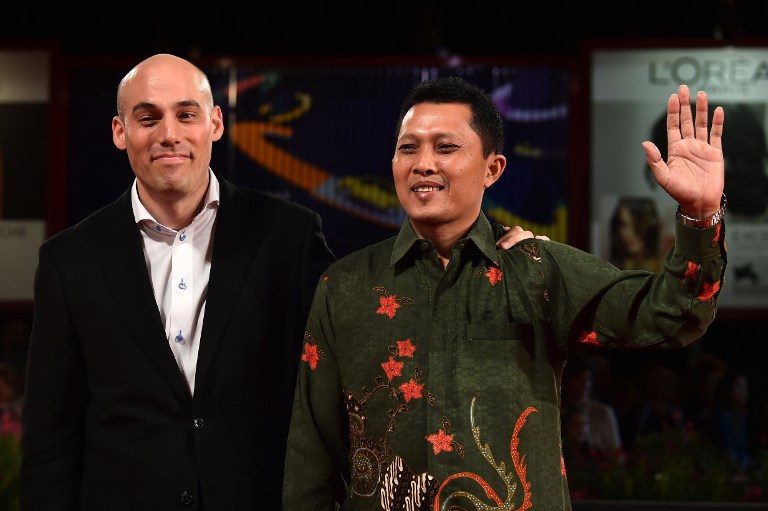SUMMARY
This is AI generated summarization, which may have errors. For context, always refer to the full article.

“The Look of Silence’, the companion piece to last year’s Oscar-nominated “The Act of Killing”, focuses on the perpetrators of the murder of at least 500,000 alleged communists in the aftermath of Indonesia’s 1965 attempted coup. (READ: Breaking the silence around the 1965 Indonesian genocide)
In “The Look of Silence” Oppenheimer turns his attention to the victims and their families, following a man called Adi as he confronts the killers who hacked his brother to death in 1965. The film was released in August and won the Grand Jury Prize at the Venice International Film Festival. (READ: Chilling film explores Indonesia mass killings further)
Seeing horror

Oppenheimer said Adi’s motivation to get involved in “The Look of Silence” – despite the risks to his safety that are later evident in the film – was that he hoped to “get out from under the shadow of the perpetrators”.
“It had been hanging over him his whole life,” he said.
Adi, an optometrist, is followed by the camera in his village as he visits and treats residents suspected to be complicit in the murder. As he does so, he slowly and impassively draws out the information he seeks.
The murder of Adi’s older brother took place amid a wave of killings in Indonesia after a failed coup which Army General Suharto blamed on Indonesia’s Communist Party, a move that sparked nation-wide reprisals against those suspected to be members of that party.
Suharto used the episode to muscle out the then-President Sukarno and take power, going on to rule Indonesia for 3 decades.
“I knew I would make a second film,” said Texas-born Oppenheimer. “I wanted to make a film about what it does to human beings to survive and to have the perpetrators still surrounding them, to live for 50 years in silence and terror.”
Adi and his family have since moved to another part of Indonesia for their own safety following on-camera threats. The crew is also listed as “anonymous” for fear of reprisals while Oppenheimer admits he would now be unable to return to the country. – with a report from Mathew Scott, Agence France-Presse/Rappler.com
Add a comment
How does this make you feel?
There are no comments yet. Add your comment to start the conversation.